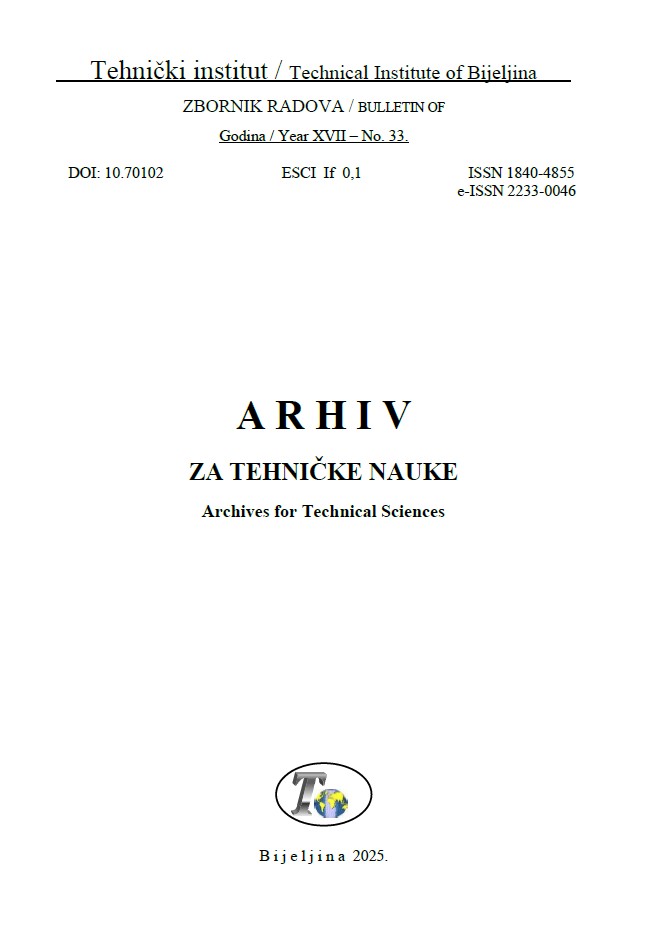THE HISTORICAL SIGNIFICANCE OF MUD ARCHITECTURE IN ARID REGIONS FOR SUSTAINABILITY AND DURABILITY
Mud architecture has played a crucial role in shaping human settlements in arid regions, offering sustainable and durable solutions for centuries. This study explores the historical evolution of mud architecture, highlighting its adaptability to extreme climatic conditions and its significance in preserving cultural heritage. The paper examines tra...
By Abdurahim Mannonov, Khurshid Samatov, Nilufar Fayzieva, Valisher Sapayev, Dadaxon Abdullayev, Nargiza Ruzmetova, Khafiza Khasanova
ANALYSIS OF SAMARKAND’S REGISTAN SQUARE AS A MASTERPIECE OF ISLAMIC ARCHITECTURE
Samarkand's Registan Square is among the greatest Islamic architectural achievements, symbolizing the architectural and cultural victory of the Timurid dynasty. The Registan Square, being the architectural and cultural hub of Samarkand, consists of three colossal madrasahs of Ulugh Beg, Sher-Dor, and Tilya-Kori symbolizing the splendor of beauty an...
By Nodira Nurullayeva, Dadaxon Abdullayev, Dilnoza Kulboyeva, Abdurahim Mannonov, Gulbahor Eshbekova, Kamola Fuzailova, Odiljon Boynazarov
EVALUATING THE SEISMIC RESPONSE OF REINFORCED CONCRETE BUILDINGS WITH SHEAR WALLS ON VARIED SLOPING TERRAINS USING PUSHOVER ANALYSIS
This study investigates the seismic performance of a four-story reinforced concrete frame building with irregularities, situated on sloping ground. Recognizing the increasing prevalence of construction on slopes due to population growth and urban expansion, this research employs a step-back model on the sloping terrain at inclinations of 0°, 10...
By Tushar Golait, Neeraj Tiwari, Manjeet Singh Hora
THE ROLE OF FINTECH IN PROMOTING ENVIRONMENTALLY AND ECONOMICALLY SUSTAINABLE CONSUMER BEHAVIOR
The financial sector has witnessed transformative efficiencies with the rapid advancement of financial technology (Fintech), which has the potential to integrate sustainability into environmental and economic practices. Keeping in view the host of large companies functioning in Saudi Arabia, this study has been undertaken to examine the role of Fin...
By Assaf Filfilan, Dr. Mohammed Ibrahim Alattas
OPTIMIZED RESISTIVE RAM USING 2T2R CELL AND IT’S ARRAY PERFORMANCE COMPARISON WITH OTHER CELLS
In the contemporary context, non-volatile-based Resistive Random-Access Memory devices are one of the most promising and emerging technologies. It is one of the top alternatives for industrialists since they are considered to offer neuromorphic in-computing capacity. This study aims to build a 2T2R RRAM cell with reduced power dissipation compared ...
By Ancy Joy, Jinsa Kuruvilla
THE INFLUENCE OF ISLAMIC ARCHITECTURE ON EUROPEAN DESIGN
Islamic architecture's impact on European design is a manifestation of centuries of cultural interaction, commerce, and conquest. Islamic architectural forms, including domes, arches, geometric patterns, and calligraphy, were introduced into European forms through contact in Spain, Sicily, and the Crusades. This research examines how Islamic archit...
By Nodir Karimov, Maqsad Maytakubov, Janjayxan Darmenov, Habibakhon Mamadalieva, Farrux Akchayev, Ilhom Karimov, Gullola Kurbanova
TIMURID ARCHITECTURE AND THE GOLDEN AGE OF CENTRAL ASIAN MONUMENTAL DESIGN
The Timurid period (1370–1507) was a foundational age in the history of Central Asian monumental architecture, an age that was marked by outstanding architectural accomplishment and the intersection of Persian, Mongol, and Islamic artistic cultures. This research examines the historical context, cultural significance, and innovative strategie...
By Nodira Nurullayeva, Abdurahim Mannonov, Nodira Babadjanova, Nasiba Isakhojaeva, Maqsad Maytakubov, Gulzoda Tashmatova, Khikmatoy Madikhanova
STUDY ON NATURAL DYEING OF SILK YARNS USING FERMENTED TURMERIC RHIZOMES WITH THEOBROMA CACAO FRAGRANCE
This study explores the use of a natural colouring method on silk strands. Before and after dyeing, the chemical composition changes in silk yarn are inspected using a Fourier-Transform Infrared Spectroscopy (FTIR) study. The outcomes showed that colourants and fragrances could be introduced to silk yarns without compromising their basic assembly. ...
By M. Sharmila, R. Divya, A. Saniya, C. Prakash
SUSTAINABLE CONSTRUCTION AND THE USE OF PREFABRICATED CONCRETE
Given that the construction industry has a significant impact on the environment and consumes large amounts of natural and energy resources, it represents a very important segment in sustainable construction. This paper provides an overview of sustainable building and the application of prefabricated concrete, specifically prefabricated concrete sl...
By Svjetlana Banjac, Saša Papuga, Gordana Broćeta
THE ROLE OF DIGITAL TECHNOLOGY IN ARCHIVING ETHNO-TOURISTIC LANDMARKS
Ethno-touristic sites must be conserved to preserve the cultural heritage and historical identity of the people. Documenting these sites is easier with enhanced digital technology, which provides faster and new ways of documenting, conserving, and managing tourism. Digital technology such as 3D scanning, virtual reality (VR), augmented reality (AR)...
By Khayrinisa Yunuskhodjaeva, Umida Almatova, Nodir Karimov, Surayyo Khaydarova, Shakhnoza Jalolova, Akramov Bahodir, Ibragimjan Toshmatov






